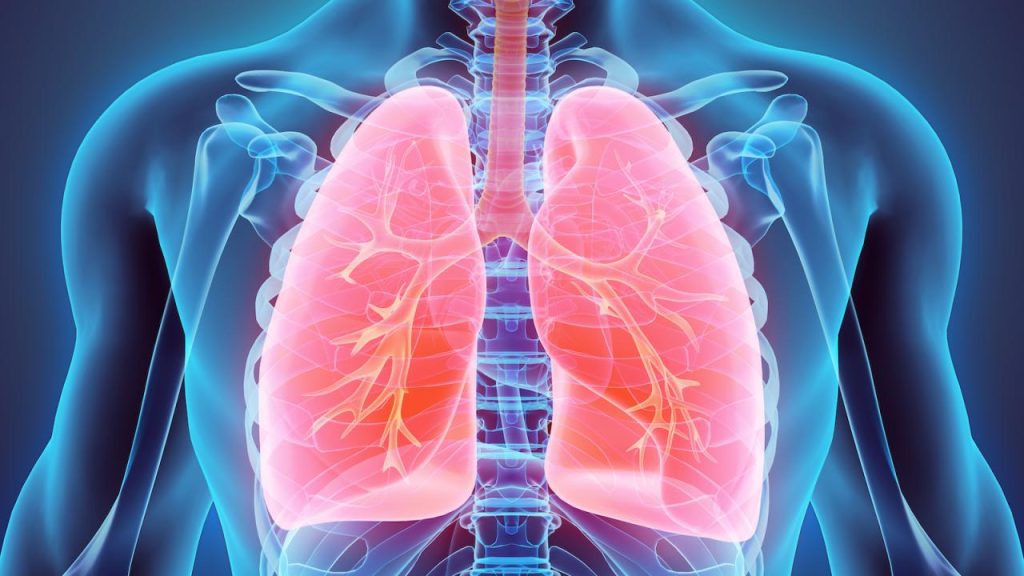
Introduction
The lungs are one of the most vital organs in the body, responsible for oxygenating blood and removing carbon dioxide. Healthy lungs are essential for energy, endurance, and overall wellness. However, modern lifestyles, pollution, smoking, allergens, and respiratory infections can compromise lung function over time.
Natural approaches can support lung health, strengthen respiratory capacity, and enhance oxygen utilization. By incorporating specific nutrients, exercises, and lifestyle changes, individuals can maintain optimal lung performance and prevent long-term respiratory issues.
This article explores the science, benefits, and practical tips to naturally improve lung health.
Understanding Lung Health
The lungs are complex organs composed of airways, alveoli, and capillaries. They allow oxygen to enter the bloodstream and remove carbon dioxide efficiently. Poor lung function can result from:
- Smoking or vaping – Damages airway lining and reduces oxygen exchange.
- Air pollution – Particulates and toxins inflame and damage lung tissue.
- Allergens – Dust, pollen, and mold can trigger inflammation and breathing difficulty.
- Respiratory infections – Viruses and bacteria can impair lung function.
- Sedentary lifestyle – Lack of cardiovascular exercise reduces lung capacity over time.
Maintaining lung health involves protecting the lungs from damage, supporting tissue repair, and improving respiratory efficiency.
Key Nutrients That Support Lung Function
Certain vitamins, minerals, and natural compounds are scientifically shown to support lung health:
1. Vitamin C
Vitamin C is a powerful antioxidant that helps reduce oxidative stress in the lungs. It also strengthens the immune system, protecting against respiratory infections.
2. Vitamin D
Adequate Vitamin D supports lung function and immunity, reducing the risk of respiratory illnesses and inflammation.
3. Magnesium
Magnesium helps relax bronchial muscles and supports optimal lung function.
4. Omega-3 Fatty Acids
Found in fish oil, flaxseed, and chia seeds, omega-3s have anti-inflammatory properties that support airway health and reduce chronic inflammation.
5. N-Acetylcysteine (NAC)
NAC is a natural antioxidant that helps thin mucus, improving airway clearance and respiratory efficiency.
6. Herbal Compounds
- Turmeric (Curcumin) – Reduces inflammation and protects lung tissue.
- Ginger – Supports circulation and respiratory comfort.
- Licorice Root – Acts as a natural expectorant and soothes airways.

Lifestyle Practices for Healthy Lungs
Along with nutrients, lifestyle practices play a key role in supporting lung health:
1. Regular Cardiovascular Exercise
Activities like walking, swimming, cycling, and running improve lung capacity and oxygen utilization.
2. Breathing Exercises
Deep breathing, diaphragmatic breathing, and pursed-lip breathing strengthen respiratory muscles and improve lung efficiency.
3. Avoid Pollutants
Minimize exposure to smoke, chemicals, and dust. Use air purifiers indoors and wear masks in polluted environments.
4. Stay Hydrated
Drinking water keeps mucous membranes moist, supporting proper lung function and easier mucus clearance.
5. Maintain a Healthy Weight
Excess weight can restrict lung expansion and reduce oxygen intake. A balanced diet and regular exercise help optimize respiratory efficiency.
Benefits of Supporting Lung Health Naturally
- Improved Oxygenation – Enhanced lung function ensures more oxygen reaches muscles and organs, increasing energy.
- Reduced Respiratory Infections – Nutrient-rich support strengthens immunity and reduces the risk of infections.
- Easier Breathing – Stronger lungs and airway muscles reduce shortness of breath and fatigue.
- Enhanced Physical Performance – Better lung capacity supports endurance, stamina, and daily activity.
- Long-Term Respiratory Wellness – Natural support protects against chronic diseases such as COPD and asthma.
Exercises to Improve Lung Capacity
Diaphragmatic Breathing
- Sit or lie comfortably.
- Place one hand on your chest, the other on your abdomen.
- Inhale deeply through the nose, expanding your abdomen.
- Exhale slowly through pursed lips.
- Repeat 10–15 times daily.
Pursed-Lip Breathing
- Inhale through your nose for two seconds.
- Exhale slowly through pursed lips for four seconds.
- Helps reduce shortness of breath and keeps airways open.
Aerobic Workouts
- Engage in moderate-intensity cardio 3–5 times per week.
- Activities like brisk walking, cycling, and swimming enhance oxygen intake and strengthen lungs.
Natural Remedies for Lung Health
- Steam Therapy – Helps loosen mucus and clear airways.
- Honey and Herbal Teas – Soothes irritation and supports immune function.
- Essential Oils (Eucalyptus, Peppermint) – Can support clearer airways when used in moderation.
Frequently Asked Questions (FAQ)
Q1: Can lung health improve at any age?
Yes, with proper nutrition, exercise, and avoidance of pollutants, lung function can improve even in older adults.
Q2: How long does it take to see results from natural lung support?
Improvements in energy and breathing may be noticeable within a few weeks, with full benefits developing over months of consistent practice.
Q3: Can these methods prevent respiratory diseases?
They reduce risk factors and strengthen the lungs but cannot guarantee complete prevention of all diseases.
Q4: Are supplements necessary for lung health?
While a nutrient-rich diet can provide many benefits, targeted natural compounds can accelerate lung support, especially in individuals with deficiencies.
Q5: Is exercise safe for people with existing lung conditions?
Yes, but always consult a healthcare professional for personalized guidance. Low-intensity exercises and breathing practices are often recommended.
Conclusion
Maintaining lung health is essential for energy, stamina, and overall well-being. Natural approaches, including nutrient-rich support, herbal compounds, lifestyle changes, and breathing exercises, provide safe and effective methods to improve respiratory function.
By focusing on anti-inflammatory, antioxidant, and circulation-boosting strategies, individuals can reduce respiratory discomfort, enhance oxygen utilization, and protect long-term lung health. Incorporating these practices into daily life promotes a stronger, healthier respiratory system and improved quality of life.

